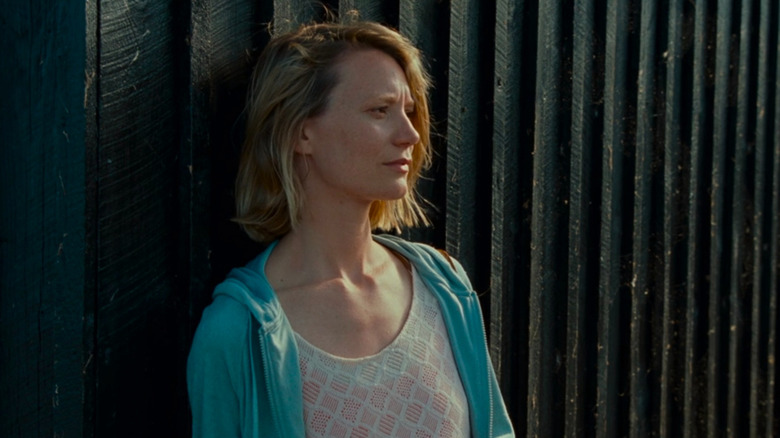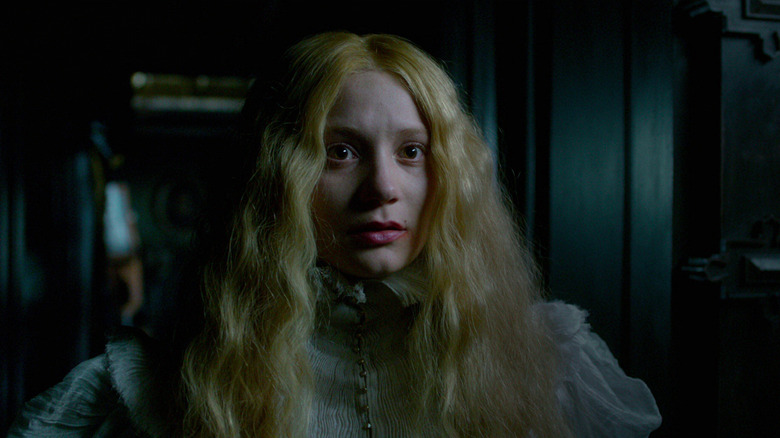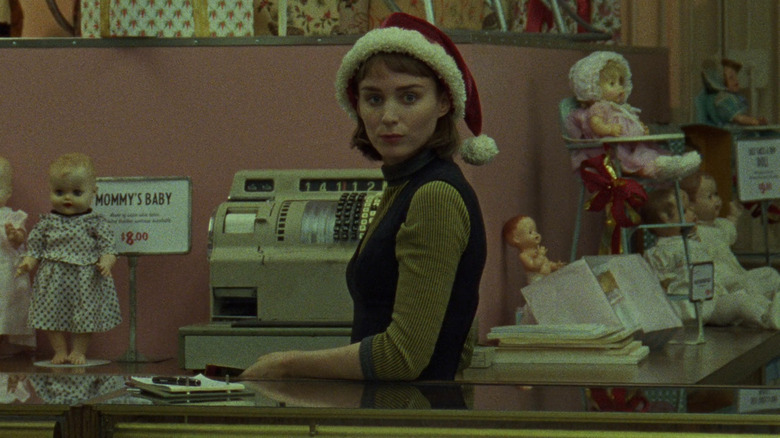Why Mia Wasikowska Turned Down A Starring Role Opposite Cate Blanchett In Carol
Mia Wasikowska has quietly become one of my favorite working actors. This was not something I expected after she was consumed in the muck of Tim Burton's truly dreadful live-action adaptation of "Alice in Wonderland," but looking back, I can't place any of the blame on that film's utter failure on her. But I can't say that it didn't affect how I viewed her at the time. Since then, though, she made her way back to smaller projects from top-tier filmmakers, like Park Chan-wook's "Stoker," Jim Jarmusch's "Only Lovers Left Alive," and David Cronenberg's "Maps to the Stars." Because of my association of her with "Alice," I always framed her being good in these movies as a nice surprise, which was unfair. It embarrassingly wasn't until the offbeat Western comedy "Damsel" from directing duo David and Nathan Zellner that I realized, "Oh, she's just great all the time," and a year ago, I strongly believe she should have earned a Best Supporting Actress Oscar nomination for her performance in Mia Hansen-Løve's "Bergman Island."
Because she is so clearly talented and appeared in a string of auteur-driven films, it only makes sense that there were a bevy of other celebrated filmmakers looking to cast her in movies, but for some reason or another, it never worked out. Rarely do we hear about these what-if stories until decades after they occur, but in the case of Mia Wasikowska, we actually know a major what-if from her career. She was originally tapped to star alongside Cate Blanchett in Todd Haynes' "Carol" in the role that eventually went to Rooney Mara. Ultimately, a director who loves himself a monster wanted her to star in his gothic haunted house romance picture instead.
Guillermo came calling
If you are a successful working actor, the job-related stress you have morphs from whether or not you will get a job to whether or not you will be able to fit a job in your busy schedule. Time is finite, and no actor will ever be able to do every single project that they want. (Unless, of course, you are one of these Daniel Day-Lewis types who just shows up every couple of years because so few projects actually make you want to invest your time and energy into it.) Mia Wasikowska fell victim to the dreaded curse of scheduling conflicts when it came to "Carol" because Guillermo del Toro's "Crimson Peak" moved to first position, as she explained to IndieWire:
"I was attached to it a long time ago, and then a few things happened, and the shoot got pushed, and I signed onto Guillermo [del Toro]'s film 'Crimson Peak.' So I signed onto that and started having conversations with Guillermo and 'Carol' came back, and they're like, 'We're going!' And I was like, 'I can't now,' so yeah, it was a bummer. It's just part of it. You win some, you lose some."
I am of the opinion that "Crimson Peak" is far and away del Toro's greatest work, and Wasikowska being at the center of this lush, delicious horror picture is a major reason why. "Carol" was far and away received better in 2015, but if you are equating artistic success with awards, then you are looking at the life of an artist in the wrong way. I know it's disappointing to ultimately not do a role you had been preparing to do, but I hope the trade-off of working with human teddy bear Guillermo del Toro was worth it.
Everyone ended up in the right roles
As much as I love Mia Wasikowska, I question whether or not she would be better suited to the role of Therese Belivet in "Carol" than Rooney Mara. On a purely visual level, there is a clear distinction between Blanchett and Mara that is far less apparent with Blanchett and Wasikowska, particularly if she were to keep her customary blonde hair for the role. Part of the allure and tension in their relationship comes from their attraction to their opposite, and you wouldn't have that dynamic if the original casting stayed in place. Instead, it would be more of a story about an older woman finding her youth and a younger woman connecting with her future, but that would be its only layer, whereas the actual version can contain that and more.
As it all shook out, I think both actors ended up in the projects they were meant to be in. I cannot imagine these movies without these performers at their centers, and frankly, I wouldn't want to either. Mara was able to firmly break free from the image of "The Girl with the Dragon Tattoo" that shot her to a new level of fame, and Wasikowska finally got to be in a special effects-heavy fantasy film that had all the beautiful darkness that was completely lacking in her breakthrough role in "Alice in Wonderland." Both women still continue to choose interesting projects and make great films, and they both deserve to.


